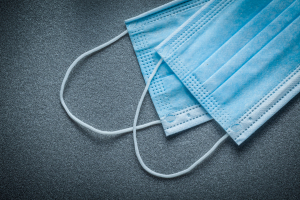Producers
The U.S. Department of Health and Human Services (HHS) recently finalized its Notice of Benefit and Payment Parameters which is also summarized in this Fact Sheet. These regulations are issued each year and make updates and changes to various provisions of the Affordable Care Act (ACA).
The Employee Benefit Security Administration (EBSA), a division within the U.S. Department of Labor (DOL), recently published a Cybersecurity Program Best Practices document for employer plans subject to the Employee Retirement Income Security Act of 1974 (ERISA).
Health Reimbursement Arrangements (HRAs) can be a great way for employers to control their benefits budgets without sacrificing quality of coverage for their employees. There are several different types of HRAs available in the market, but perhaps the most popular is the Integrated HRA. These HRAs work alongside a group health plan to reimburse employees for out-of-pocket expenses. Only those employees enrolled in the group health plan can participate in the HRA.
The Affordable Care Act (ACA) created premium tax credits in the individual health insurance market which first became available as of January 1, 2014. The amount of the premium tax credit available to a person is largely based on their household income. Most eligible individuals receive the premium tax credit in advance by estimating their household income for the year.
The Department of Labor (DOL) issued an FAQ on April 7, 2021 relative to the application of COBRA subsidies authorized under the American Rescue Plan Act of 2021 (ARPA). The information below summarizes the content of the FAQ.
Model Notices
The DOL has provided the following model notices:
The Internal Revenue Service (IRS) recently published Announcement 2021-7 which indicates Personal Protective Equipment (PPE), such as masks, hand sanitizer, and sanitizing wipes, may be reimbursed under a Flexible Spending Account (FSA), Health Reimbursement Arrangement (HRA), or a Health Savings Account (HSA). These expenses are eligible for reimbursement if the primary reason for the purchase is to prevent the spread of COVID-19.
As you may be aware, the Biden administration previously created an extenuating circumstances special enrollment period (SEP) on HealthCare.gov in response to the COVID-19 pandemic. The SEP allows individuals to sign up for coverage (or change plans) without a typical qualifying event.
Individual Coverage Health Reimbursement Arrangements (ICHRAs) are premium reimbursement arrangements that allow employers to reimburse employees for personal health insurance coverage they obtain on their own. Plans such as those offered on the Health Insurance Marketplace or Medicare plans are eligible for reimbursement.
On March 11, 2021, President Joseph Biden signed into law the American Rescue Plan Act (ARPA). ARPA is the third stimulus package signed into law in response to the COVID-19 pandemic. Under ARPA, two significant provisions were included that will help more Americans obtain and pay for health insurance coverage.
Is your benefits administrator not living up to your standards? Are customer service let-downs and reimbursement problems giving you headaches? Are you worried about sticking it out until your next renewal? Well, worry no more! You don’t need to wait until your next renewal to find a better benefits administrator.










